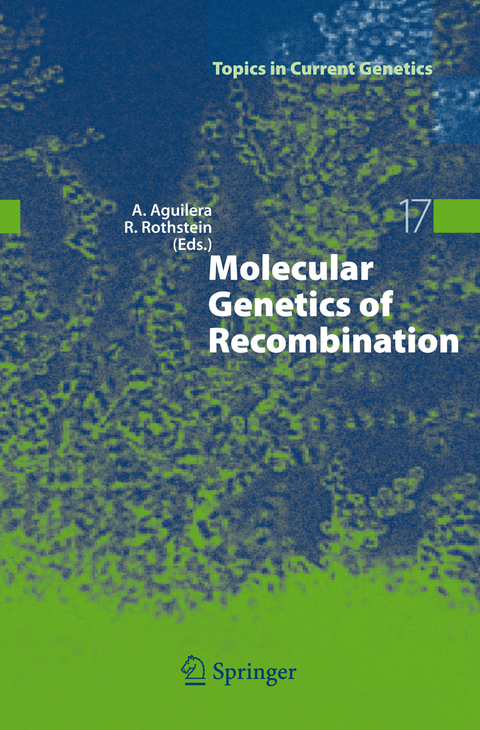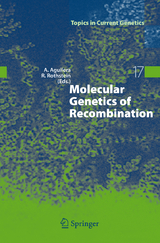Molecular Genetics of Recombination
Springer Berlin (Verlag)
978-3-540-71020-2 (ISBN)
Genetic recombination is an important process involved in shaping the genetic make up of progeny. Increasingly, it has become evident that recombination is a DNA repair pathway crucial during DNA replication in vegetatively growing cells. It plays a critical role in preserving the integrity of the genome by mediating the repair of DNA damage, which can occur during normal cellular metabolism as a result of oxidative stress, transcription, replication fork stalling or breakdown, or after the exposure to DNA damaging agents. Until recently, much of our knowledge on the mechanisms of genetic recombination has come from studies of prokaryotic and simple eukaryotic fungal systems. However, these studies have now been significantly extended to mammals, such that a comparative picture of the general factors and mechanisms of genetic recombination is beginning to emerge. Detailed genetic and biochemical studies have led to the isolation and characterization of many of the recombination-repair proteins in E. coli and S. cerevisiae, which in turn has led to the identification of homologues in human cells. The link between recombination defects and recombination proteins in a number of tumors as well as in human hereditary syndromes makes genetic recombination a cellular process of key importance not only in basic biology but also in biomedical studies.
Genetics of Recombination in the Model Bacterium Escherichia Coli.- Homologous Recombination in Low dC + dG Gram-Positive Bacteria.- The Bacterial RecA Protein: Structure, Function, and Regulation.- Biochemistry of Eukaryotic Homologous Recombination.- DNA helicases in recombination.- Holliday Junction Resolution.- Replication forks and replication checkpoints in repair.- Sister chromatid recombination.- Mating-Type Switching in S. Pombe.- Multiple Mechanisms of Repairing Meganuclease-Induced Double-Strand DNA Breaks in Budding Yeast.- The Cell Biology of Mitotic Recombination in Saccharomyces Cerevisiae.- The cell biology of homologous recombination.- BRCA2: safeguarding the genome through homologous recombination.- Meiotic recombination.- Site-specific recombination.- V(D)J Recombination: Mechanism and Consequences.- Nonhomologous End-Joining: Mechanisms, Conservation and Relationship to Illegitimate Recombination.- Analytical methods from the perspective of method standardization.
| Erscheint lt. Verlag | 3.4.2007 |
|---|---|
| Reihe/Serie | Topics in Current Genetics |
| Zusatzinfo | XXIV, 524 p. |
| Verlagsort | Berlin |
| Sprache | englisch |
| Maße | 155 x 235 mm |
| Themenwelt | Naturwissenschaften ► Biologie ► Mikrobiologie / Immunologie |
| Naturwissenschaften ► Biologie ► Zellbiologie | |
| Schlagworte | biochemistry • Cell Biology • conservation • DNA • DNA Damage Checkpoint • DNA Replication • Double-strand break Repair • Escherichia coli • Genetic Recombination • Genetics • Genome Instability • Metabolism • Protein • proteins • recombination • Regulation • Saccharomyces cerevisiae • transcription |
| ISBN-10 | 3-540-71020-5 / 3540710205 |
| ISBN-13 | 978-3-540-71020-2 / 9783540710202 |
| Zustand | Neuware |
| Haben Sie eine Frage zum Produkt? |
aus dem Bereich




